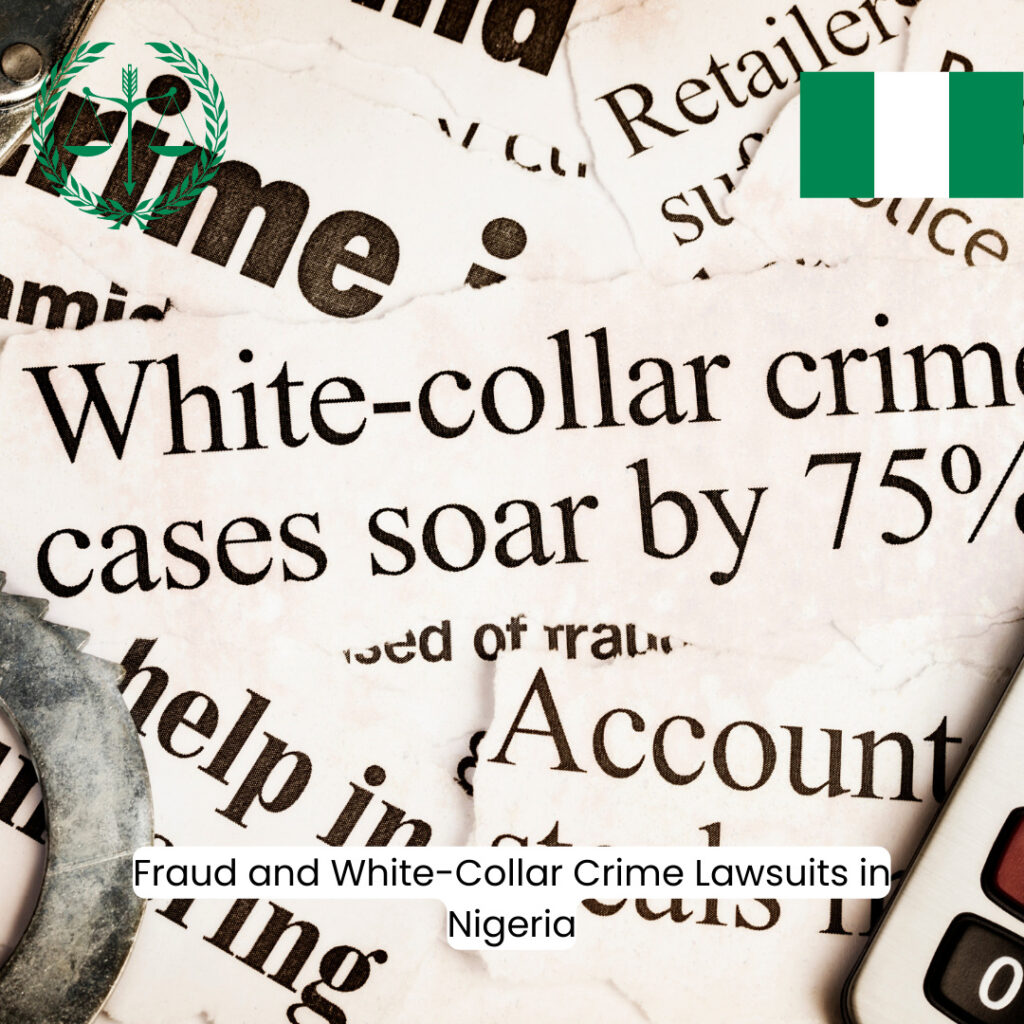Fraud and White-Collar Crime Lawsuits in Nigeria: Pursuing Accountability in Financial Wrongdoings
In today’s complex and interconnected business world, instances of fraud and white-collar crime have become a significant concern for individuals, businesses, and governments. These acts involve sophisticated schemes to manipulate financial systems for personal gain, causing substantial economic and reputational damage. Nigeria, like many other countries, faces challenges in combatting fraud and white-collar crime. This article delves into the landscape of fraud and white-collar crime lawsuits in Nigeria, exploring the prevalent issues, legal framework, investigation methods, potential penalties, and the broader implications on financial integrity and regulatory compliance.

Common Fraud and White-Collar Crime Issues:
- Advance Fee Fraud (419 Scams): Deceptive schemes aimed at extracting money from victims under false pretenses.
- Embezzlement and Misappropriation: Unauthorized use of funds entrusted to an individual’s care, often within an organization.
- Bribery and Corruption: Offering or accepting financial or other incentives to influence decisions or gain unfair advantages.
Legal Framework:
Nigeria addresses fraud and white-collar crime through various statutes, including the Criminal Code Act and the Economic and Financial Crimes Commission (Establishment) Act. These laws set out provisions for investigating and prosecuting financial crimes, with a focus on preserving economic stability and public confidence.
Investigation Methods:
- Forensic Accounting: Expert accountants analyze financial records to uncover irregularities and inconsistencies.
- Whistleblower Programs: Encouraging individuals to report financial misconduct while offering protections and incentives.
- Collaboration: Law enforcement agencies work in tandem with financial institutions and regulatory bodies to gather evidence.
Potential Penalties:
- Fines: Convicted individuals and entities may face substantial fines, aiming to deter future wrongdoing.
- Imprisonment: Perpetrators can be sentenced to imprisonment, reflecting the severity of the crime.
- Asset Forfeiture: Illegally acquired assets may be confiscated to repay victims and restore financial losses.
Impact on Financial Integrity and Regulatory Compliance:
Investor Confidence: Effective prosecution of fraud and white-collar crimes bolsters investor confidence in the financial system.
Deterrence: Visible consequences serve as a deterrent, discouraging potential wrongdoers from engaging in illegal activities.
Regulatory Evolution: Strengthening anti-fraud measures leads to the development of robust regulations and compliance mechanisms.
Conclusion:
Fraud and white-collar crime lawsuits in Nigeria exemplify the intersection of legal, economic, and ethical concerns. Addressing these issues requires collaborative efforts among law enforcement agencies, financial institutions, regulatory bodies, and the private sector. While pursuing justice is vital, preventive measures such as implementing internal controls, conducting thorough due diligence, and educating the public about common fraud schemes are equally important. Upholding the principles of transparency, accountability, and fairness is crucial for maintaining a thriving economic environment, where both businesses and individuals can operate with confidence and integrity. Through robust enforcement, heightened awareness, and continuous improvement in regulatory frameworks, Nigeria can effectively combat fraud and white-collar crime, safeguarding the nation’s financial reputation and promoting ethical business practices.
